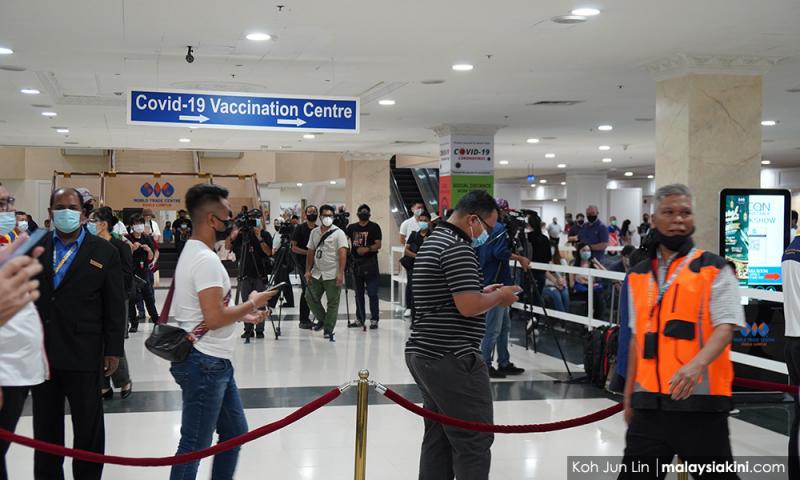LETTER | Use 14-day lockdown to mass test, speed up vaccination
LETTER | The 14-day full lockdown to start from June 1, should be used to mass test the community and speed up vaccination of the population.
After three MCOs and now the second full lockdown, it is clear, certain policies have failed to bring the Covid-19 situation under control. The government should use this 14 day period to rethink its approach and re-strategise in its fight against Covid-19.
Covid-19 deaths have skyrocketed. Yesterday, deaths rose to an alarming 98. Daily cases will soon reach five digits as testing increases.
Therefore, mass RTK Antigen screening programmes need to be urgently executed in line with the World Health Organisation's (WHO) Find Test Trace Isolate and Support (FTTIS) system. These efforts should be conducted in all states with support from the Federal government.
It would be best to test now as most people will be at home during the 14 days under lockdown. The government should have all the necessary data from Hotspots Identification for Dynamic Engagement (HIDE) and MySejahtera to identify areas that urgently need to be screened for Covid-19.
Community transmissions are high, therefore it is urgent that infections are detected as quickly as possible so that the infected can be immediately isolated to prevent further spread while close contacts are traced.
MOH should also accept RTK Antigen positive results instead of conducting an additional RT PCR test for those found positive from RTK Antigen screening. RTK Antigen screening is faster in determining positive cases and more cost-effective.
If a person has tested positive using the RTK Antigen it is more unlikely they will test negative using RT PCR. At present, those testing positive using RTK Antigen have to take an RT PCR test to confirm the positive result. The results for RT PCR can take around two days to obtain.
The National Immunisation Programme (NIP) also needs to move into 5th gear. Vaccination centres should be increased to prevent crowds at mass vaccination centres. With patient visits to clinics expected to significantly dip during the lockdown, vaccinations by private GPs should go into full swing.
We welcome the National Covid-19 Immunisation Programme coordinating minister’s announcement today that 500 GP clinics will be administering vaccines by June 15 and that the number of clinics designated as vaccination centres will increase to 1,000 by June 30. It is hoped the target of 5,000 participating GPs can be achieved over the next two months.
Although there are a total of 8,000 GPs in the country, with just 5,000 private GPs on board, an additional 150,000 vaccinations per day can be carried out. Currently, only 184 of the 2,500 GPs have begun administering the vaccines.
We are at a critical stage in the pandemic. Resources need to be optimised and unnecessary red tape should be removed.
Lastly, there has been a lack of meaningful engagement between the government and other sectors. However, it is not too late to initiate discussions between MOH, MOE and professional groups, private hospitals and GPs towards the development of a national strategy to manage the Covid-19 pandemic.
A proper exit strategy will also be needed and the MOH must be willing to accept feedback from all stakeholders. After all, Covid-19 affects everyone.
There also needs to be engagement before implementation. Many policies have been made without consulting those on the ground especially in private healthcare.
Resources also need to be urgently beefed up in all public healthcare facilities. All public hospitals are facing shortages in manpower. Most are overwhelmed with severe cases of Covid-19.
Apart from frontliners in the hospitals, the District Health Offices (PKD) and Covid-19 Assessment Centres (CAC) are also in dire need of manpower. The PKDs and CACs are the country's first line in managing Covid-19.
These departments are in charge of Covid-19 triaging, screening, assessment, contact tracing, home monitoring of category 1 & 2 Covid-19 patients, monitoring of Persons Under Surveillance (PUS), Persons Under Investigation (PUI) as well as management of non-Covid-19 cases.
DR SUBRAMANIAM MUNIANDY is president of the Malaysian Medical Association (MMA).
The views expressed here are those of the author/contributor and do not necessarily represent the views of Malaysiakini.
RM12.50 / month
- Unlimited access to award-winning journalism
- Comment and share your opinions on all our articles
- Gift interesting stories to your friends
- Tax deductable
